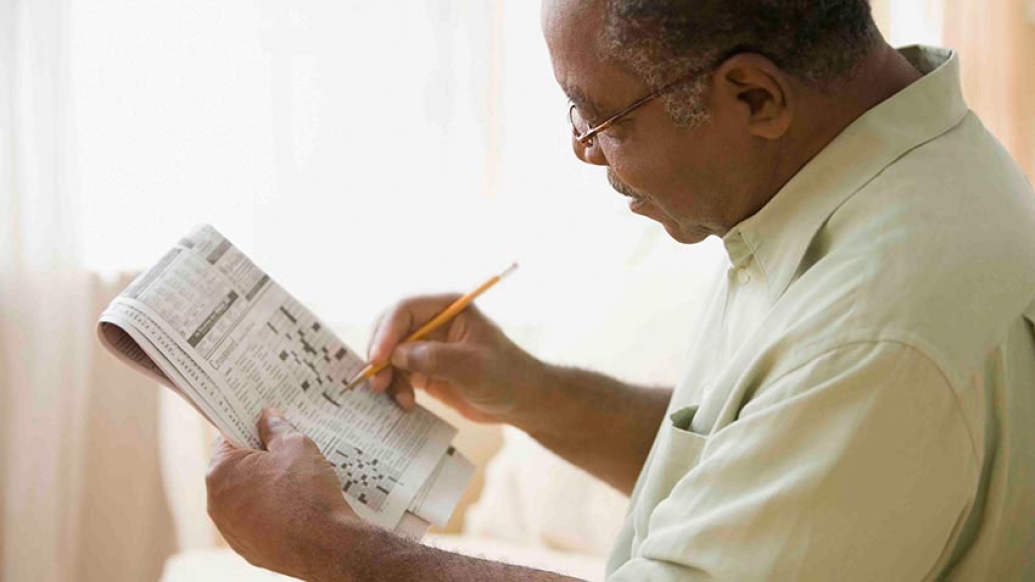New clinic opens the door for people of all abilities to take part in sports.
5:00 AM
Author |

Sports participation means different things to different people. For some, it's the adrenalin rush of competition; for others, the simple joy of play. For people with disabilities like limb amputations, traumatic brain injuries or spinal cord injuries, though, taking part in a sport may seem like an impossibility.
However, inclusivity and accessibility are growing as more and more individual and team sports are being modified for people with disabilities. Called adaptive sports, they use modified equipment and techniques to remove barriers to the fun, physical activity and camaraderie of traditional sports.
As the diversity and popularity of adaptive sports grow, the field of sports medicine is adapting, too. Michigan Medicine's at the forefront of that change, having opened a clinic devoted to meeting the unique needs of athletes with disabilities.
MORE FROM MICHIGAN: Sign up for our weekly newsletter
The Adaptive Sports Medicine Clinic, opened just in October 2019, provides specialized care and consultation for adaptive sports athletes of all abilities; from those seeking more physical activity to elite competitors.
Inspired by experience
The clinic is the brainchild of physical medicine and rehabilitation specialist Melissa Tinney, M.D., who cares for patients through both Michigan Medicine's Department of Physical Medicine & Rehabilitation and the VA Ann Arbor Healthcare System.
Before arriving in Ann Arbor in 2018, Tinney spent more than a decade as a physician in a VA hospital in West Virginia, guiding the rehabilitation of veterans with a range of physical disabilities. Her belief in the transformational potential of adaptive sports grew from her experience helping disabled veterans to get and stay active.
We provide guidance and support for patients interested in finding a good adaptive sport 'fit' for their abilities and interests, reducing risk of injury and improving the chance of continued activity and participation, Tinney says.Melissa Jugo Tinney MD
In October, Tinney's advocacy for disability issues was recognized with a Certificate of Appreciation from the U-M Council for Disability Concerns, presented at the 2019 James T. Neubacher Awards ceremony.
"As a physical medicine and rehabilitation physician, I look for opportunities and tools to help my patients pursue lifelong wellness and optimum function," she says. "Regular physical activity is a big part of the equation. This new clinic is an opportunity to apply what veterans have taught me about the power of adaptive sports to help even more patients."
About the clinic
As Tinney explains, the fundamentals of sports medicine and physical medicine and rehabilitation form the foundation of the clinic.
"Athletes of all stripes need comprehensive evaluations and medical clearance to confidently participate in sports," she says. "They need advice on how to prepare for a competition or event. And when sports injuries occur, they need prompt treatment and rehabilitation."
LISTEN UP: Add the new Michigan Medicine News Break to your Alexa-enabled device, or subscribe to our daily updates on iTunes, Google Play and Stitcher.
The Adaptive Sports Medicine Clinic tailors those fundamentals to the specialized needs of people with a wide range of disabilities. "Each disabled patient's medical decision-making is unique," she continues, "and each adaptive sport has its own unique equipment, prostheses and training requirements."
The clinic is neither disability nor sport-specific, providing services to athletes of all experience and skill levels. "We provide guidance and support for patients interested in finding a good adaptive sport 'fit' for their abilities and interests, reducing risk of injury and improving the chance of continued activity and participation," Tinney says. "Patients already involved in adaptive sports can rely on the clinic for injury prevention and treatment, training strategies and troubleshooting of technique, equipment and other necessary prosthetics and/or orthotics."
A local hub for adaptive sports
The opening of the clinic comes just two years after the Department of Physical Medicine & Rehabilitation launched a grassroots initiative to encourage participation in adaptive sports. UMAISE, Michigan Medicine's Adaptive and Inclusive Sports Experience, aims to provide quality, local, low-cost sports and recreation opportunities for people with disabilities. Tinney serves on UMAISE's executive board, and is working to make the most of the synergies between the Adaptive Sports Medicine Clinic and UMAISE.
"Each of my patients is an inspiration," Tinney says. "Some rediscover adaptive versions of sports they enjoyed in the past, while others fall in love with sports they never imagined playing. Either way, it's a joy to help them stay safe, improve their health, and have fun."

Explore a variety of health care news & stories by visiting the Health Lab home page for more articles.

Department of Communication at Michigan Medicine
Want top health & research news weekly? Sign up for Health Lab’s newsletters today!





